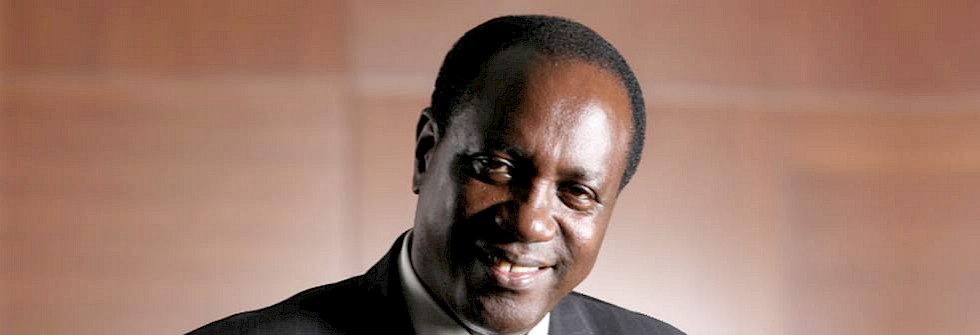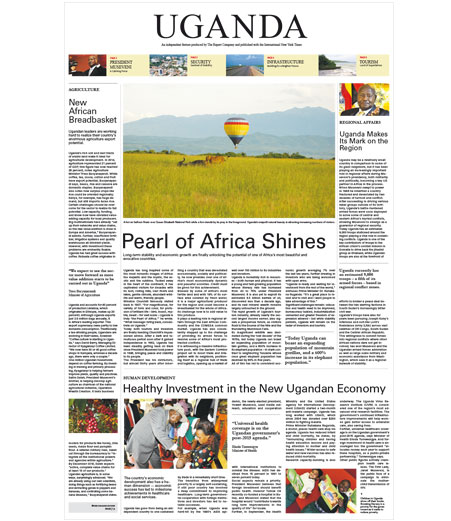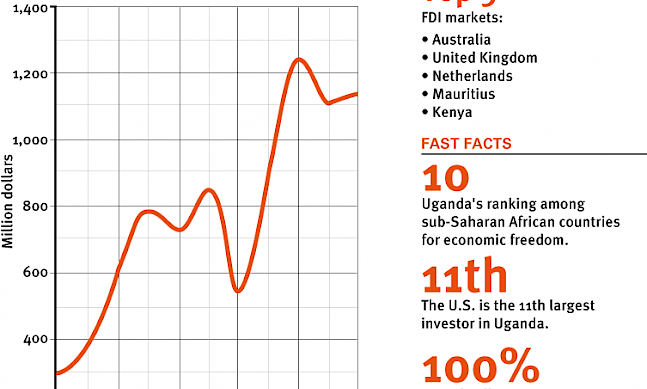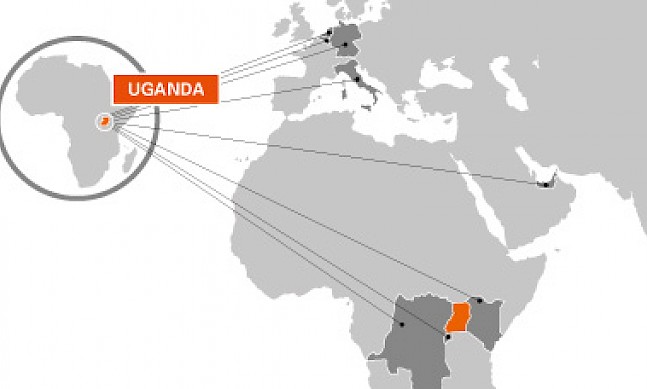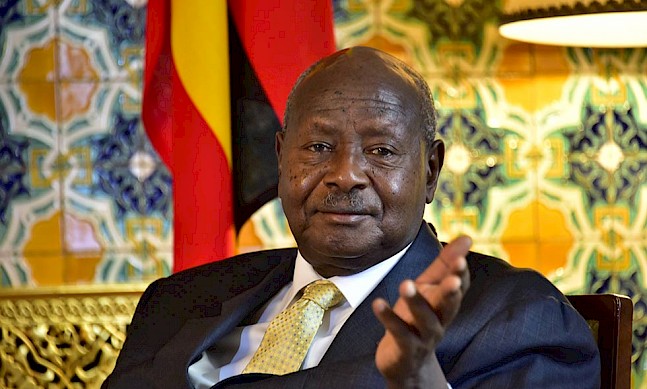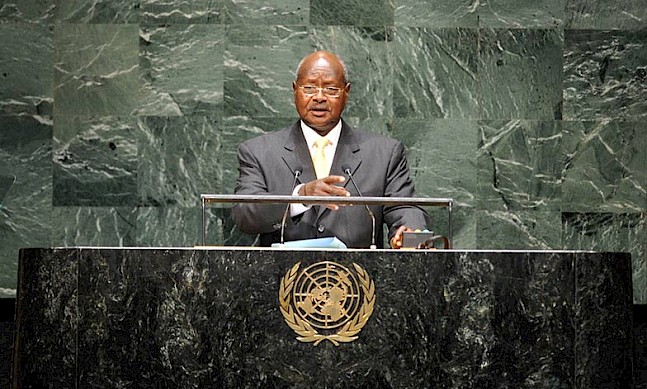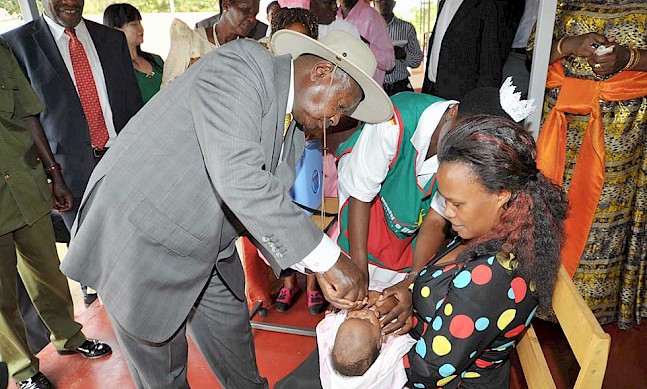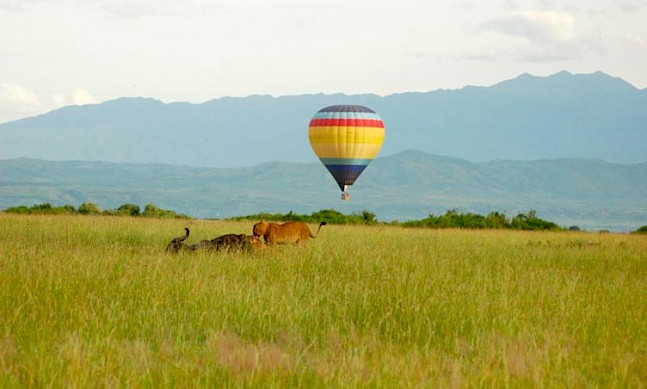A distinguished lawyer and entrepreneur, Dr Elly Karuhanga has been instrumental in laying the legislative framework for Uganda’s nascent oil and gas sector. As chairman of the country’s chamber of mines and petroleum, he works to bridge the interests of government and industry, while as founding partner of Kampala Associated Advocates he acts as a first port of call for investors considering Uganda. The Report Company met with him in his offices in Kampala to find out more.
The Report Company: How would you appraise the role played by the Uganda Chamber of Mines and Petroleum?
Dr Elly Karuhanga: We try to remain relevant to our members. They love us and we do a good job for them. Because oil is new in Uganda, the companies who are here to exploit it are also new in Uganda. For the Ugandan government, handling oil is a new challenge, and so we are representing the voice of the industry. This is helpful to Uganda because we can become a bridge for both parties and we can help with the challenges and opportunities the industry is facing, attract others to come, and we can speak out more authoritatively and be much more credible than single members alone.
TRC: With the recent fall in oil prices, how would you define the current situation in the sector?
EK: There’s going to be a lot of realignment of forces. Companies are going to have to amalgamate in order to survive. They’re going to review their costs implications and their expenditures; they are going to look at how they can remain profitable in difficult times and maintain and sustain that in the boom time and the governments are also going to review their approach to negotiations with companies. There are going to be a lot of lessons learned.
It is probably a good thing that this rationalization has happened, because now the best companies will remain in the game. Many companies came rushing to Africa and took big chunks of acreage but right now I think those who are fit and proper will be the ones to participate in the round of licensing that Uganda has come up with. In my view, it is a good thing that everybody comes to the table sober. It’s better that this has happened before we start our oil business. Now, we can become really attractive and put up a good package. Before this, we could have easily become arrogant.
TRC: What makes Uganda an attractive package?
EK: There is enthusiasm. The good thing about Uganda’s oil is it is shallow. It is not very difficult to get from the ground. The cost to bring up a barrel is one dollar. Secondly, we have a good oil province with about 80-90 percent success so far which means we are a good assured case. The companies who come here will not find Uganda a graveyard, they’ll find it a prosperous field.
Another advantage is that we have taken a bit of time to understand the field, educate our people, develop the infrastructure, put in place the right laws, and sensitize the population. Everyone has had the opportunity to ask the questions they wanted to ask, debate the issues and talk about corruption and all the potential problems. I think now everybody is saying let’s get our oil out of the ground and let’s attract people to come and work with us. We want long-term partners with deep pockets.
Apart from oil and gas, we also have great opportunities in mining. What is interesting about minerals is the realization that everything you have, there’s a mineral involved. From your clothing to your shoes to the food you eat to the office chairs we sit on, there’s a mineral involved in the construction. The minerals are underground, they have to be got out of there and we have them. There is also tourism. It is already the biggest earner for the country. I think if I was an investor I’d be looking for a lawyer to come and set me up now in Uganda. We have a good judicial system and a good legal regime.
“There are a lot of roads, electricity and investment needed to support mining, oil and gas and everything else in Uganda.”Post This
TRC: Is this where Kampala Associated Advocates comes in?
EK: We are the first port of call for international companies in oil and gas and minerals as well as for financial institutions, litigation and taxation. We have an international network. We work with Dentons, which is now the largest law firm in the world.
TRC: As China steps up investment in Africa, is there still room for American investors?
EK: We have been friends of America for a long time. English is our national language, and America has been a very big ally for us in our struggle to get rid of institutional instability.
TRC: What would you like people to know about the opportunities in Uganda?
EK: As you sit in your comfort zone in America, know that there is something out there that is profitable if you were to take the decision to fly out and have a look. With the value addition point being emphasized every day by the president, the supporting infrastructure is going to be a very important place to invest in. There are a lot of roads needed, a lot of electricity needed, and a lot of investment needed to support mining, oil and gas and everything else we are doing in Uganda. If you set up in Uganda, you have also set up in South Sudan, Congo, Rwanda, Burundi, Tanzania and Kenya. This is a good hub and it offers stability.


